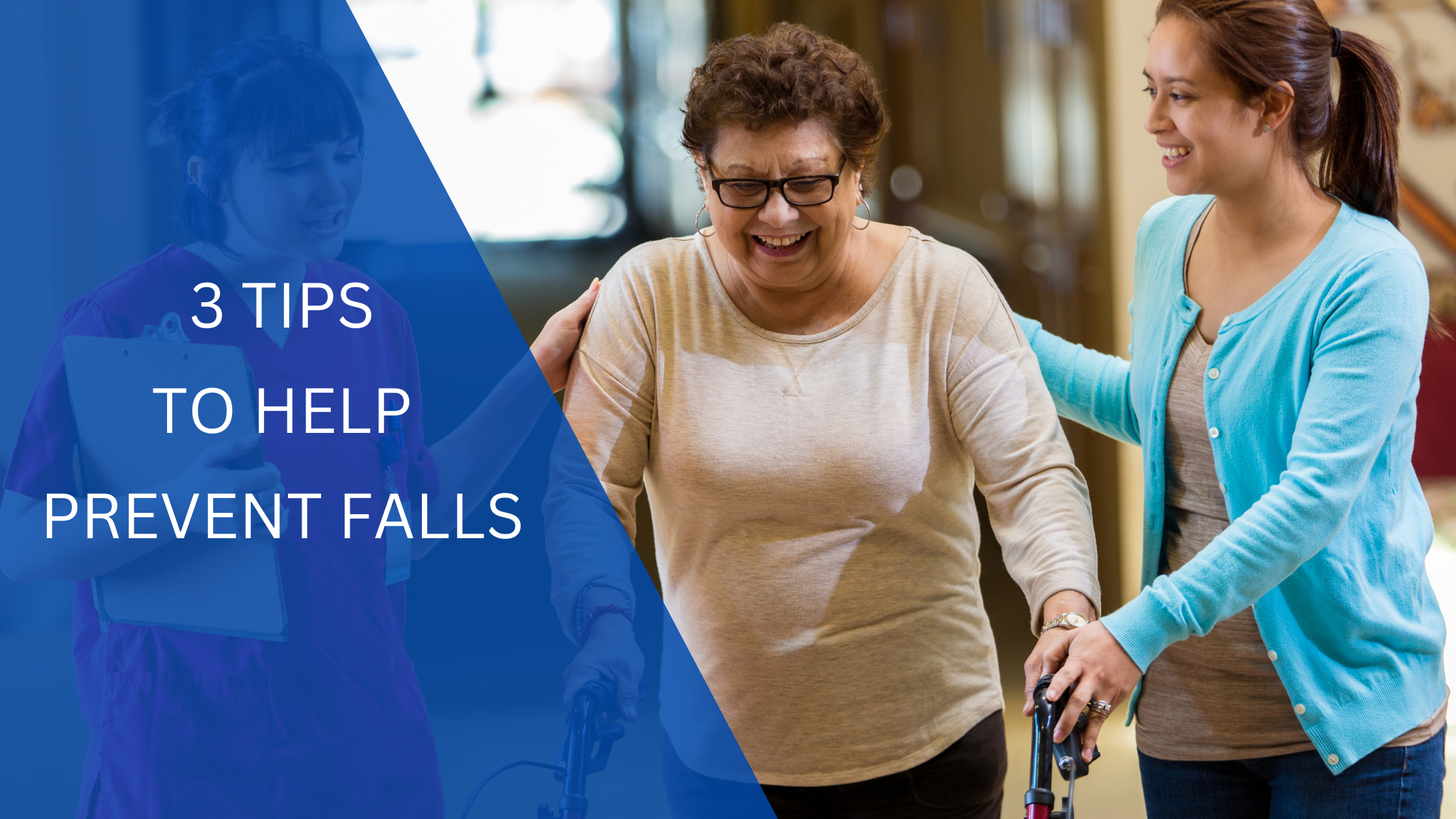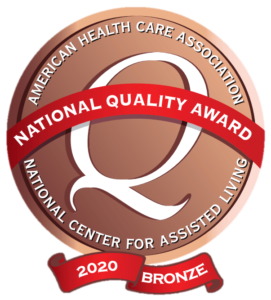
Preventing falls among the elderly is essential as they are all too common. In 2020 alone, over 36,000 deaths were associated with falls among those ages 65 and older.¹ There were 3 million emergency room visits due to senior falls.¹ Roughly $50 billion in medical costs is spent each year on injuries caused from falls amongst the elderly.¹ To say the least, falls are dangerous and can have a devastating impact. However, they don’t have to be a part of regular life and there are strategies that seniors can implement in their life to aid in fall prevention. Here are three tips to help prevent falls.
#1 Counsel With Medical Experts
Talk with your Physician & Pharmacist. It is common for seniors to be taking several medications. Medications can often have side effects that cause dizziness or sleepiness. These side effects can contribute to falls. Talking with your doctor and having your medications reviewed by a pharmacist can help you be aware of potential risks. Plan ahead for the activities that you will do and take precautions after taking medications that may increase the risk of falling. Some important precautions include:
- Utilizing a cane or walker for added stability.
- Informing those you are with of the potential side effects from the medication so that they can help assist you.
- Avoid standing up quickly and ensure that railings or stability aides are available.
- Abstain from activities that involve quick movement.
- Be conscientious of uneven ground.
Seek a Physical Therapist’s Expertise. Another medical expert that is great to work with are physical therapists. Physical therapists can perform a fall risk assessment, which will give you a baseline for the likelihood of a fall. Physical therapists can help create personalized care plans that would strengthen stabilizer muscles, which aid in fall prevention.
Schedule with your Optometrist. The inability to see clearly can greatly increase the likelihood of a fall. It is important to ensure that your vision is not impaired. If you wear corrective lenses, make sure that the prescription is current and sufficient.
Speak to a Podiatrist. Individuals that suffer with neuropathy or foot challenges are at a higher risk of falls. It is good to speak with a podiatrist so that they can examine your feet and footwear. They will be able to provide guidance that will decrease the risk of falls associated with these issues.
#2 Make Your Living Space Safe
Falls commonly occur at home. It is common for people to trip on items such as a rug, clutter, slippery surfaces, or furniture. It is important to inspect your home and make adjustments so that the risk of falling is minimized. Here are some tips to make your home safer:
- Wear shoes or slippers that have grip on the sole. This will provide better traction on smooth or slippery surfaces.
- Remove rugs or ensure that the rugs have an adhesive that will prevent the edges from coming up.
- Have professional grab bars installed in the bathroom and other areas of the house where assistance may be needed.
- Install night lights or motion lights throughout the house to enhance visibility when needing to get up and walk throughout the house at night.
- Ensure spacing between your furniture is sufficient to avoid tripping hazards.
- Declutter your rooms and remove items such as clothing or bags from the floor.
As you do a full inspection of your home and keep safety top of mind, the likelihood of a fall will substantially decline.
Tip #3 Enhance Your Strength And Balance
As we age, our strength and balance tends to decline. As an individual ages, they begin to lose up to 5% of their muscle mass after the age of 30. The majority of men lose up to 30% of their muscle mass over the span of their lifetime.³ This loss of muscle mass and strength, highly contributes to falls. However, you can prevent loss of muscle mass and enhance balance by taking a proactive approach to your health.
The first place to start is by engaging in regular strength training and stretching exercises. A certified personal trainer can assist in this process and create a program that is tailored to your unique needs and desires. Not only will this enhance your balance capabilities, but there are skeletal and overall health benefits as well. It is important to team up with a professional that can tailor your program to activities and exercises that you enjoy and can realistically continue.
Reduce Your Risk of Falls Today
The thought of taking a fall can be scary and comes at a high cost. However, there are several things you can do to help prevent falls and lessen the likelihood of becoming injured. You’ll be able to reduce your fall risk by counseling with medical experts, making your living space safe, and enhancing your strength and balance.
References
- CDC. (2023). Older Adult Fall Prevention. Retrieved from https://www.cdc.gov/falls/index.html
- NIH. (N.D.). Six Tips To Help Prevent Falls. Retrieved from https://www.nia.nih.gov/health/infographics/six-tips-help-prevent-falls
- Harvard Health Publishing. (2016). Preserve your muscle mass. Retrieved from https://www.health.harvard.edu/staying-healthy/preserve-your-muscle-mass
Let Us Help You Today!
We welcome the opportunity to speak with you about careers at The Cottages and the care that our residents receive at our Idaho locations. We are experts in assisted living, memory care, respite, adult day care, and have been serving seniors for over 20 years. Our small home-like senior living homes and specially-trained team members offer an atmosphere that promotes the well-being of your loved one.
If you have any questions, would like to tour one of the Idaho assisted living or memory care homes, or speak with one of our licensed administrators, please fill out the form below. Please mention which location(s) you’re interested in.



